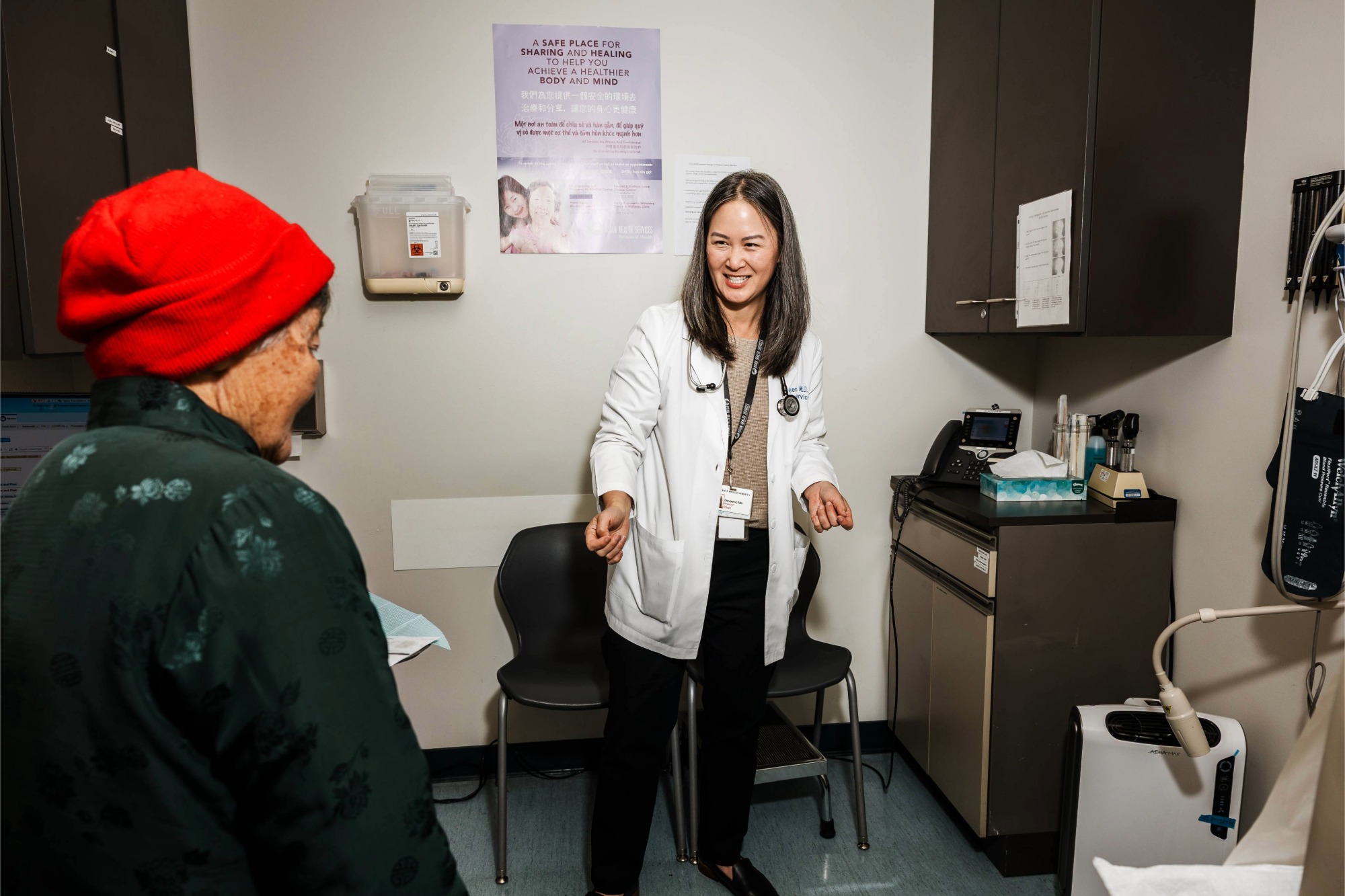E: Strengthen the Partnership, Improve Quality, and Monitor Operations
As the program grows and evolves, the Medi-Cal managed care plan (MCP) and palliative care (PC) providers educate all relevant staff and leadership, and oversee the program together. Regular discussions between the partner organizations ensure smooth operations, enable expansion when the opportunity arises, and most importantly, support excellence in care and service to patients and communities.
“We meet with our palliative care providers monthly to discuss the member list, status, needs, level of care, referrals, and progress toward graduation. Quarterly we discuss opportunities, like how to grow the program and our network.”
—Established program representative
In this section:
- E1: Education at the MCP on Palliative Care and the PC Program
- E2: Regular Operations Meetings
- E3: Regular Interdisciplinary Team Clinical Meetings
- E4: Regular Assessment of Quality, Growth, and Impact
- Progress in California
E1: Education at the MCP on Palliative Care and the PC Program
The managed care plan’s PC program team and staff, and managers from related programs (like care management), learn about the benefits of palliative care and its relationship to existing services for members with serious illness. Managed care plan (MCP) leadership learns the benefits to members and to the MCP’s population health and patient experience goals, and how to support the ongoing relationship between partner organizations.
- Minimum: Deliver education and consultation to all relevant MCP staff during new staff orientation, as part of regular program review, and when there are changes to program eligibility. Meet with senior leadership to describe the program’s benefits to members and to the MCP business.
- Enhancements: Incorporate training on the PC program into regular MCP staff education, such as annual refresher trainings required for certifications or organization licensure. Hold formal training sessions led by a PC partner for new staff at the MCP. Provide training in communications skills for staff who discuss PC with MCP members. Cross-train staff from related programs (like case management) in PC.
Tools and Links
“Feeling Prepared: Louisa’s Story” (short video) provides an overview of what palliative care is and how it helps, from a Medi-Cal enrollee’s perspective (CHCF).
“The Case for Community-Based Palliative Care” (white paper) provides key data on the value of community palliative care, program profiles, and a case example to use with leadership (CAPC).
“Palliative Care for Care Managers,” a self-paced course (Shiley Haynes Institute for Palliative Care, California State University).
Select research that makes the case for home-based palliative care:
- “Effect of a Home-Based Palliative Care Program on Healthcare Use and Costs,” (J. Brian Cassel et al., Journal of the Amer. Geriatric Society, 2016).
- “Effectiveness of a Home-Based Palliative Care Program for End-of-Life,” (Richard D. Brumley et al., Journal of Palliative Medicine, 2003).
- “Home-Based Palliative Care in a Shared Savings Environment: An Interview with Dr. Dana Lustbader,” with link to published research (CAPC, Journal of Palliative Medicine, 2019).
- “Medicare Care Choices Model (MCCM)” (PDF) infographic showing positive results in patient and caregiver experience and in cost savings for Medicare enrollees receiving supportive care (nonhospice) services from hospice organizations (Center for Medicare and Medicaid Innovation).
E2: Regular Operations Meetings
Partners review program criteria and patient volume, solve problems, monitor progress, and make plans for improvement. They review process measures and clinical quality measures. They work on operations and coordination issues, like the shared work of connecting patients to related services like care management or durable medical equipment (DME). Some established partnerships recommend holding these meetings monthly.
- Minimum: Meet regularly with each contracted PC provider to discuss program operations with an oversight and monitoring perspective.
- Enhancements: Define specific expectations of improvement and increased efficiency by both partners in collaboration.
Tools and Links
Enrollment summary spreadsheet (ZIP) to capture numbers of members referred, members eligible, members enrolled, and other dispositions (CHCF, also listed in Section A4).
Decision Points Worksheet (PDF), a list of issues that may arise in an MCP-PC provider partnership (e.g., a required service that is challenging to deliver consistently, the expectation for very frequent regular meetings) and offers ideas to address them while maintaining quality and efficiency (CHCF).
Payer-Provider Partnerships for Palliative Care, an eight-part publication that covers the main aspects of a PC program, including patient engagement, referrals, payment issues, and assessing impact (CHCF).
Quick Tips for Successful Partnerships (PDF), a one-page summary of Payer-Provider Partnerships for Palliative Care (CHCF).
“Metrics and Assessing Impact” (PDF) in Lessons Learned from Payer-Provider Partnerships for Palliative Care, with practical advice for the work of building data capacity (CHCF, also listed in Section E4).
Connecting Palliative Care Partners (Frontline and Specialty) with the Larger Network (PDF), a worksheet to identify resources for palliative care patients and to plan care coordination with these organizations (CHCF).
Standards and Processes for Coordination and Expedited Authorizations (PDF), examples of operations improvements between an MCP and its PC provider partner, as planned in regular joint program operations meetings (CHCF compilation of MCP resources, also listed in Section C3).
E3: Regular Interdisciplinary Team Clinical Meetings
In a case conference–style forum, partners focus on the needs of three groups of shared patients: new patients, high-needs patients, and patients in care transitions. Some established partnerships recommend holding these meetings monthly.
- Minimum: Designate the MCP clinical lead to attend, to support PC providers in addressing specific patient needs that arise.
- Enhancements: For plans with multiple contracted PC providers, conduct annual or semiannual meetings with all vendors to discuss challenges and promising practices.
Tools and Links
Clinical Interdisciplinary Team Meetings Agendas and Protocols (PDF) (CHCF compilation of MCP resources).
E4: Regular Assessment of Quality, Growth, and Impact
Partners monitor performance, including data on quality measures and numbers of members served. They may consider changing or expanding eligibility criteria and other ways to better serve members/patients. Together, they revise the quality measures set annually.
- Minimum: Meet quarterly with PC providers to review program enrollment and quality metrics.
- Enhancements: Pay membership costs for contracted PC providers to join the Palliative Care Quality Collaborative (PCQC) with the expectation that the PC provider will submit quality data to PCQC as part of membership and report those data to the MCP. Conduct ongoing assessment of impact on quality and total costs of care to ensure long-term investment by the MCP. Implement specific growth targets for the palliative care program.
Tools and Links
Metrics, Measures, and Reports: An Overview (PDF), a complete list of the data used by members of this national collaborative (Palliative Care Quality Collaborative).
Metrics Balance Check Worksheet (PDF), a form to compile, organize, and balance PC program metrics along three types: structure, process, and outcomes (CHCF, also listed in Section B3).
“PEACE Hospice and Palliative Care Quality Measures,” specifications for clinical quality measures for pain, dyspnea, and patient treatment preferences (University of North Carolina at Chapel Hill).
“Metrics and Assessing Impact” (PDF) in Lessons Learned from Payer-Provider Partnerships for Palliative Care, with practical advice for the work of building data capacity (CHCF, also listed in Section E2).
Progress in California
In a March 2021 survey by CHCF and the Coalition for Compassionate Care of California, 87% of MCP respondents reported having a formal quality improvement component for their palliative care program.
“We host an annual meeting attended by all of our palliative care provider partners where we discuss how to improve the program and grow the program. It creates a community of practice for our MCP team and for the staff and leaders of the PC provider partners.”
—Established program representative
Authors & Contributors
Hunter Gatewood
Hunter is a consultant and teacher in leadership and improvement with his company, Signal Key Consulting. His connection to palliative care stems from experience in social work case management with high-mortality populations, and more recently in serving palliative care providers in quality improvement and systems integration efforts.
Kathleen Kerr
Kathleen is a health care consultant in private practice in Northern California. Her work is focused on promoting the development of sustainable, quality palliative care programs, with particular emphasis on services that operate in rural areas and those that serve Medicaid enrollees.






